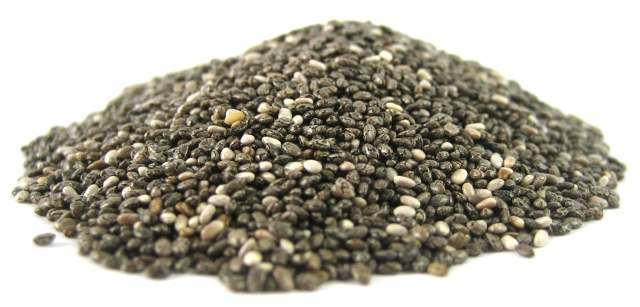Overall Health Benefits Of Omega 3
Everyone needs the essential fatty acid, Omega3 for good health and optimal body function. This “good fat” helps encourage healthy cell growth and helps our nervous system and brain function properly. When exploring the wonderful health benefits of Omega3, we need to first look at how it works.
Omega3 fatty acids are a combination of 3 different essential fatty acids that each do a job in the body:
DHA (docosahexanoic acid) – the most abundant fatty acid found in the brain and eyes. About 50% of the body’s DHA is found concentrated in the plasma membranes of our neurons. Breast milk contains high amounts of DHA to support newborn brain cell growth.
EPA (eicosapentaenic acid) – While we can get this from fish sources, they don’t produce it. It comes from the algae the fish eat. This is one fatty acid that our bodies can convert from another fatty acid ALA. EPA is usually combined with DHA for best effectiveness.
 ALA (alpha-linolenic acid) – The highest amounts of this fatty acid come from plants. Flax, chia seeds, kiwi, lingonberry and soybeans. ALA is not stable for baking and sources need to be milled in order to get the most benefits. Use caution with soybean sources as the GMO versions have very low levels of ALA.
ALA (alpha-linolenic acid) – The highest amounts of this fatty acid come from plants. Flax, chia seeds, kiwi, lingonberry and soybeans. ALA is not stable for baking and sources need to be milled in order to get the most benefits. Use caution with soybean sources as the GMO versions have very low levels of ALA.
Also, when these fatty acids are hydrogenated they can turn into unhealthy trans-fats. It is best to use raw organic sources of ALA for the most healthy benefits.
Omega3 and Disease Benefits
Whether you have a health condition or not, you still need to be eating adequate amounts of Omega3 in your diet for optimal health. If you have one of the diseases listed below, you may need to increase your intake of Omega3 with your doctor’s permission.
Omega3 fatty acids benefit the following diseases:
 Auto-immune disorders – Chemicals known as “resolvins” reduce the inflammation of auto-immune disorders. Omega 3 fatty acids help the body increase production of resolvins and lower the inflammation present in these disorders.
Auto-immune disorders – Chemicals known as “resolvins” reduce the inflammation of auto-immune disorders. Omega 3 fatty acids help the body increase production of resolvins and lower the inflammation present in these disorders.
- Heart Disease – Omega 3 is helps reduce blood pressure, by thinning the blood and lowering inflammation inside the cardiac blood vessels. It can even help heal injured cardiac tissues. Cardiologists are even using Omega 3 to help people heal after heart attacks or open heart surgery.
- Eye Disease – Diets high in Omega 3 fatty acids tend to have lower levels of macular degeneration and age related eye disease.
- Depression and Anxiety – The neurons in the nervous system contain tiny bits of Omega 3 fatty acids. Lower levels may cause an increase in depression and anxiety. While Omega 3 is not a cure for mental illness, it may help reduce the symptoms.
- Memory and Cognitive disorders – Brain cells are largely made up of Omega 3. Studies show that getting enough Omega 3 in the diet can help improve memory and cognition. Omega 3 is now added to infant formula and even some prenatal vitamins to ensure healthy brain development from the time of conception. Alzheimer’s patients must have adequate Omega 3 intake to slow the progression of the disease. Some investigations are looking at recovery from traumatic brain injury with Omega 3.
Omega 3 Food Sources
 You can find the highest amounts of Omega 3 in seafood like, cold water wild salmon and shellfish. Non-meat sources include: flax and flax oil, walnuts, canola oil and soy products. We often do not get enough Omega 3 because our diet in the United States contains very little seafood.
You can find the highest amounts of Omega 3 in seafood like, cold water wild salmon and shellfish. Non-meat sources include: flax and flax oil, walnuts, canola oil and soy products. We often do not get enough Omega 3 because our diet in the United States contains very little seafood.
The only problem with seafood based sources of Omega 3 is if the fish are exposed to high levels of mercury. Mercury can block the absorption of Omega 3 and also cause other health issues.
When choosing an Omega 3 supplement, make sure to look for the manufacturer’s attention to this very important detail.
A good diet for higher levels of Omega 3 is the Mediterranean diet. This diet contains foods that are high in the “good fats.” It is based on eating healthy oils and nuts, while lowering the intake of red meat.
Another good diet is the “Japanese diet” which contains a good amount of fish eaten on a daily basis. This is the best way to get the most Omega 3 from dietary sources. The recommendation for any diet is at least 2 servings of fish weekly. Eat cold water wild-caught fish like; white fish, tilapia and salmon.
Conclusion
You can experience the wonderful health benefits of Omega 3 by just making a few dietary changes. Getting plenty of Omega 3 in your diet can help you manage chronic health conditions and improve your overall body health.Make sure you talk to your doctor before using Omega 3 supplements or making a change in your diet.

 Subscribe Now
Subscribe Now


 Cardiac Disease
Cardiac Disease

 This little talked about nutrient is suddenly becoming very well-known and for good reason. Researchers are finding that Omega 3 fatty acids are very essential to healthy body function, and our society is seriously deficient. Studies show that many health problems are directly attributed to the lack of Omega 3.
This little talked about nutrient is suddenly becoming very well-known and for good reason. Researchers are finding that Omega 3 fatty acids are very essential to healthy body function, and our society is seriously deficient. Studies show that many health problems are directly attributed to the lack of Omega 3. Brain and Memory – Recent research shows that Omega 3 fatty acids have a direct
Brain and Memory – Recent research shows that Omega 3 fatty acids have a direct 

 Omega 3 Requirements for Inflammation
Omega 3 Requirements for Inflammation



